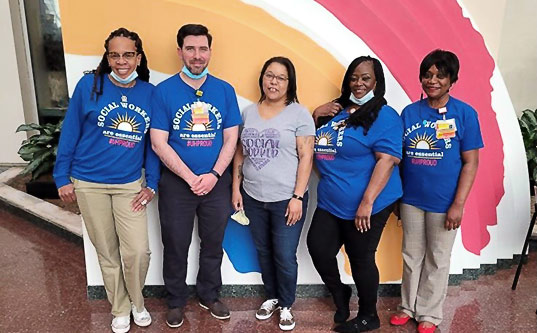Victims of Violence: The Antifragility Initiative at UH Rainbow Babies and Children’s Hospital
The Antifragility Initiative (AI) is a holistic, person-centered pediatric Hospital-based Violence Intervention Program (HVIP) serving youths and families in the greater Cleveland area. The program equips and empowers children, adolescents and families with healing, restoration and growth following an incident of violent injury. The AI is centered on the premise that children and families who have experienced major trauma due to violence benefit greatly from coordinated support as they begin to heal and reorder their lives.

To contact our Antifragility Initiative Program Coordinator, Matthew Krock, MSSA, LISW-S, call 216-844-8294 or email Matthew.Krock@UHhospitals.org.
Bringing an Antifragility Initiative to Victims of Youth Violence in Cleveland

Many children in the U.S., especially black and brown children living in low-income neighborhoods, experience tragically high levels of violence in their communities. Spearheaded by Edward Barksdale, Jr., MD, Surgeon-in-Chief at UH Rainbow Babies & Children’s Hospital, the AI was launched in June 2019 to combat youth violence in the communities of Greater Cleveland.
At the time of its establishment, the AI looked to four similar initiatives in Chicago, Milwaukee, Philadelphia and Pittsburgh and assessed the best practices used by those programs to help young survivors of gun violence and other forms of assault. Like the HVIPs that came before it, the Cleveland-based AI is designed to address community violence from a public health perspective, recognizing that violence can be prevented with positive social support, mentorship and the development of coping skills.
How to Help
If you would like to support the Antifragility Initiative, please consider purchasing items from our wish list. All purchases support the Antifragility Initiative participants.
What is Antifragility?
We believe resilience following an incident of violent injury – a victim’s ability to return to being the person they were before the traumatic event – is not enough. We aim for children and teens who have sustained injuries due to violence to become antifragile: this term encapsulates the idea of a victim of violence growing stronger than they were before the incident. We adopted the name Antifragility Initiative to reflect this important focus.
Who We Serve
The AI serves children and teens ages 6 through 17 treated for interpersonal and/or community violence at UH Rainbow Babies & Children’s Emergency Department at UH Cleveland Medical Center. This includes youths treated for gunshot wounds, stabbings and other forms of physical assault.
The Golden Hour
One of the key operating principles of the AI is acting quickly after someone has been shot or assaulted. Often in the immediate aftermath of violent injury, a victim who might not otherwise want or seek help is more open to receiving it. We call this critical time the “golden hour.” While the golden hour is vital for treating physical injuries, it’s also best time to enroll children and teens into programs such as the AI.
Education & Research
In addition to its direct services for violently injured children and their families, the AI functions as an education and research initiative. Through a partnership with the Center for Urban Poverty and Development at Case Western Reserve University, we study best practices and identify social determinants of health to guide our interventions, disseminating our findings to the broader research and healthcare communities. Through a partnership with FrontLine Service, we are engaged in building a trauma-informed hospital staff to better meet the needs of our patients.


